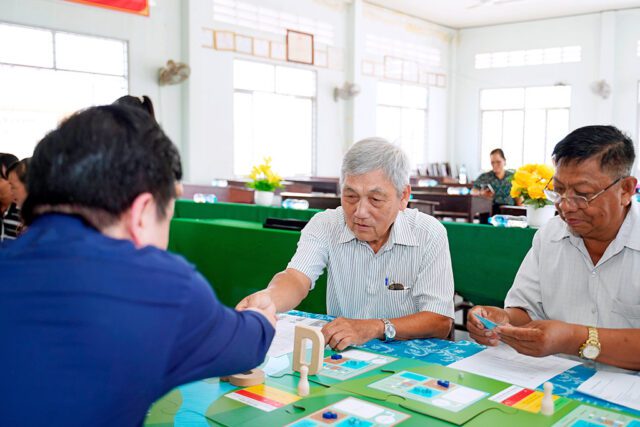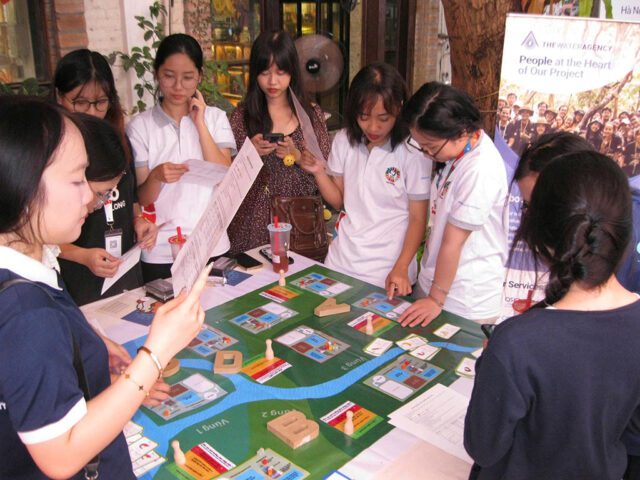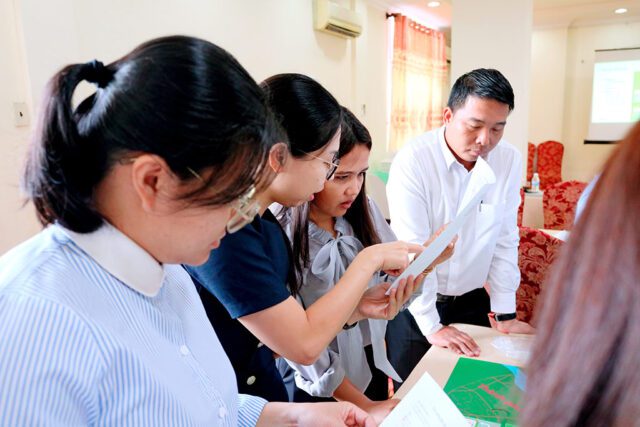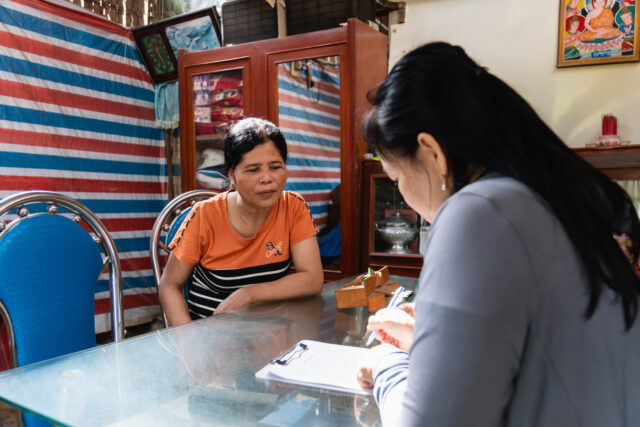On 23 and 24 April, farmers and local stakeholders in Phong Nam commune (Ben Tre) and Vinh Chau commune (Soc Trang) took part in hands-on workshops for the Groundwater Serious Game. These sessions marked the first time the newly trained moderators led full game workshops in the field, returning to the same communities where earlier household surveys had been conducted. This continuity helped moderators tailor their facilitation to reflect real local challenges, making the game more relatable and impactful.
The workshops brought together around 30 participants in Ben Tre and 20 in Soc Trang, most of whom were local farmers. Each session followed a two-part structure, combining technical knowledge-sharing with interactive gameplay.
Building Understanding Before Playing the Game
The day began with opening remarks from Commune People’s Committee representatives, setting the stage for a broader conversation about water management in the Mekong Delta. The project team presented key water-saving techniques and long-term strategies. Ms. Trang Dinh from Deltares introduced Aquifer Storage and Recovery (ASR), a system designed to store excess water underground for later use. Dr. Nguyen Hong Ung from Tra Vinh University highlighted simple, low-cost solutions at the household level, like water tanks and improved water-saving habits.
Game Sessions Spark Critical Thinking and Community Dialogue
The Groundwater Serious Game sessions that followed allowed participants to experiment with water use decisions in a simulated farming community. In Ben Tre, players initially depleted their shared water sources quickly, triggering in-game consequences. But in later rounds, they began working together, discussing trade-offs and adjusting their strategies for more sustainable outcomes. Many also shared their own techniques for capturing and storing water, like building ponds or tanks, but noted concerns around water loss due to evaporation.
In Soc Trang, the game revealed how individual actions could undermine collective water security. Farmers discussed the limits of acting alone and stressed the need for coordination, especially when upstream and downstream farms depend on shared sources. Some hesitated to invest in in-game solutions that showed delayed benefits, mirroring real-world challenges of balancing short-term costs with long-term gains. Practical solutions like drip irrigation and improved water storage were widely seen as useful and realistic.
Generational Shifts and Deeper Reflections
Beyond technical discussion, the workshops uncovered broader reflections on the future of farming. Older farmers often favored continuing with traditional crops like red onions, while younger participants showed more openness to alternative, climate-resilient crops. Some voiced concerns about the future of agriculture itself, pointing to the physical demands and low returns of farm work, and their reluctance to encourage younger generations to follow the same path. In Soc Trang, discussions extended long after the official session ended, showing how the game had sparked genuine interest and dialogue.
Across both provinces, participants expressed strong appreciation for the Groundwater Serious Game and said they would welcome more opportunities to engage with it in the future. For the moderators and project team, the workshops provided valuable insight into how interactive tools like this can help bridge technical knowledge with local realities, building shared understanding and collective action toward sustainable groundwater use.





